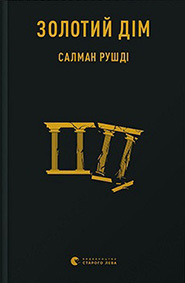You need to sign in or sign up before continuing.
Take a photo of a barcode or cover
Rushdie' latest novel about an obsessed filmmaker and his relationship with a mysterious wealthy Indian family is a feat that will be discussed, debated, and pored over as with this tale he has written the first novel to capture the spirit and angst of Trump's America. The language is poetically dense at times as Rushdie embraces postmodernism with his combination of magical realism, film scripts, memoir, and other authors' styles such as Faulkner, Fitzgerald, and even a dose of Pynchon.
Periaatteessa kaikki palikat kohdallaan ja taitava kirjoittaja. Hahmot jäi kuitenkin etäiseksi kaikessa tragediassaankin. Juoni tunti jo kerran nähdyltä. Joskus ei vain sytytä ylistetytkään kirjat, tämä harmi kyllä oli sellainen. Luin väkisin loppuun.
I’ve enjoyed the few of Rushdie’s books I’ve read previously. I didn’t read reviews of this book before starting, and didn’t realize I was signing up for a poorly informed 400 page diatribe about the dangers of “gender identity theory”. This book is self righteous, transphobic, and boring.
Moderate: Transphobia
Another absolute masterpiece by Rushdie.
The usage of vivid and developed characters to critique our society and the time we live is done so in a beautiful and engaging manner.
As with all Rushdie works, it takes some patience working through all of the allusions. But looking into the references is well worth it, I promise.
The usage of vivid and developed characters to critique our society and the time we live is done so in a beautiful and engaging manner.
As with all Rushdie works, it takes some patience working through all of the allusions. But looking into the references is well worth it, I promise.
Rushdie is a lexicon genius. It is no different in 'The Golden House'. He writes as a New Yorker. Rushdie tells a tale of an immigrant Mumbai family, hiding with new identities, under a mysterious veil of danger in New York City.
This is a very readable novel, without the Muslim/Indian baseline which is foreign to most and makes some Rushdie novels seem somewhat dense. The Golden House is a interesting read by a man who is comfortable in cultures around the globe and does not mind splashing around in his literary bona fides for the readers' enjoyment.
I initially thought that an upper Manhattan setting was not what I expected from Rushdie, but this scenario gives him the opportunity to make some observations about life in exile, even in the midst of comfort, that are clearly informed by his own experience. Highly recommended!
This is a very readable novel, without the Muslim/Indian baseline which is foreign to most and makes some Rushdie novels seem somewhat dense. The Golden House is a interesting read by a man who is comfortable in cultures around the globe and does not mind splashing around in his literary bona fides for the readers' enjoyment.
I initially thought that an upper Manhattan setting was not what I expected from Rushdie, but this scenario gives him the opportunity to make some observations about life in exile, even in the midst of comfort, that are clearly informed by his own experience. Highly recommended!
dark
funny
mysterious
reflective
tense
medium-paced
Plot or Character Driven:
A mix
Strong character development:
Complicated
Loveable characters:
No
Diverse cast of characters:
Yes
Flaws of characters a main focus:
Yes
I got through about 90% of this and then I just stopped caring. At first it was an interesting glimpse into a certain type of life and then it became just too self-indulgent and I stopped caring about the characters. Just not tight enough and overly long and complicated.
Non è tutto oro quello che luccica.
Golden è il cognome di una famiglia, e altrettanto dorata è la casa in cui andranno ad abitare - all’apparenza un vello d’oro che nasconde una gabbia.
Un romanzo che si interroga su chi siamo e ci ricorda che scappare non ci libera da noi stessi. E’ spesso necessario compiere un percorso a ritroso per fare pace con il passato e poter andare avanti.
“La tragedia è l’irruzione dell’inesorabile nelle vicende umane, dall’esterno (per una maledizione ereditaria) o dall’interno (per la tara di un personaggio); in ogni caso, gli eventi seguono il loro ineludibile corso. Fa almeno un po’ parte della natura umana, tuttavia, la tendenza a opporsi all’idea dell’inesorabile, sebbene in ogni lingua esistano parole potentissime per denotare la forza suprema in azione nella tragedia: fato, kismet, karma, destino… Fa almeno un po’ parte della natura umana la tendenza ad attribuire importanza al libero arbitrio e alla volontà e a credere che per spiegare gli insuccessi di quel libero arbitrio, di quella volontà, l’intervento nelle vicende umane del caso sia preferibile all’intrinseca presenza nella trama di uno schema predestinato e irresistibile. Il costume clownesco dell’assurdo, l’idea dell’insensatezza della vita, è per molti di noi un indumento filosofico più attraente rispetto alle sobrie tuniche del tragediografo, che se indossate divengono prove evidenti e insieme promotrici di sventura. Ma nella natura umana si ritrova anche un altro aspetto – una caratteristica che nel contraddittorio animale umano non è meno potente di quella opposta –, cioè la tendenza ad accettare fatalisticamente l’esistenza di un ordine naturale delle cose e a giocare senza lamentarsi con le carte che si sono ricevute in sorte.”
Golden è il cognome di una famiglia, e altrettanto dorata è la casa in cui andranno ad abitare - all’apparenza un vello d’oro che nasconde una gabbia.
Un romanzo che si interroga su chi siamo e ci ricorda che scappare non ci libera da noi stessi. E’ spesso necessario compiere un percorso a ritroso per fare pace con il passato e poter andare avanti.
“La tragedia è l’irruzione dell’inesorabile nelle vicende umane, dall’esterno (per una maledizione ereditaria) o dall’interno (per la tara di un personaggio); in ogni caso, gli eventi seguono il loro ineludibile corso. Fa almeno un po’ parte della natura umana, tuttavia, la tendenza a opporsi all’idea dell’inesorabile, sebbene in ogni lingua esistano parole potentissime per denotare la forza suprema in azione nella tragedia: fato, kismet, karma, destino… Fa almeno un po’ parte della natura umana la tendenza ad attribuire importanza al libero arbitrio e alla volontà e a credere che per spiegare gli insuccessi di quel libero arbitrio, di quella volontà, l’intervento nelle vicende umane del caso sia preferibile all’intrinseca presenza nella trama di uno schema predestinato e irresistibile. Il costume clownesco dell’assurdo, l’idea dell’insensatezza della vita, è per molti di noi un indumento filosofico più attraente rispetto alle sobrie tuniche del tragediografo, che se indossate divengono prove evidenti e insieme promotrici di sventura. Ma nella natura umana si ritrova anche un altro aspetto – una caratteristica che nel contraddittorio animale umano non è meno potente di quella opposta –, cioè la tendenza ad accettare fatalisticamente l’esistenza di un ordine naturale delle cose e a giocare senza lamentarsi con le carte che si sono ricevute in sorte.”


